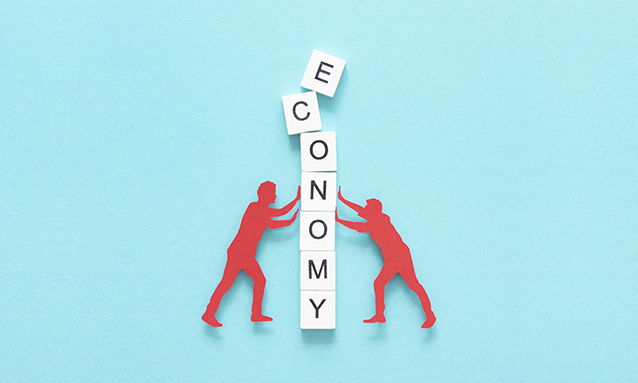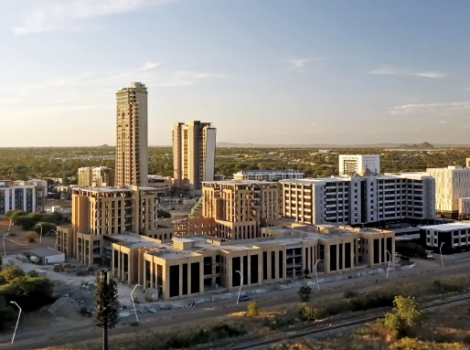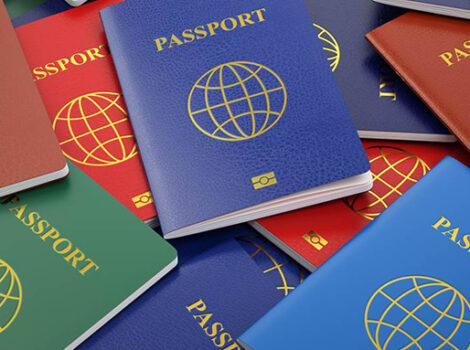
17th April 2023
The International Monetary Fund (IMF) has warned of a rocky recovery, with global economic growth expected to grow at a slower pace than initially thought in January, as major economies experience a decline.
The IMF’s April World Outlook Report suggests that global growth will bottom out at 2.8% this year before rising modestly to 3% in 2024. In the January outlook, the IMF had forecasted global growth to fall from an estimated 3.4% in 2022 to 2.9 % in 2023, then rise to 3.1% in 2024.
According to the report, global inflation will decrease, although more slowly than initially anticipated, from 8.7% in 2022 to 7% this year and 4.9% in 2024.
“On the surface, the global economy appears poised for a gradual recovery from the powerful blows of the pandemic and of Russia’s unprovoked war on Ukraine.
China is rebounding strongly following the reopening of its economy. Supply-chain disruptions are unwinding, while the dislocations to energy and food markets caused by the war are receding,” said Pierre-Olivier Gourinchas, the IMF’s economic counsellor.
According to the report, the slowdown is concentrated on advanced economies, especially the euro area and the United Kingdom, where growth is expected to fall to 0.7% and -0.4%, respectively, this year before rebounding to 1.8 and 2.0% in 2024.
The IMF said its 5-year ahead growth forecasts declined steadily from 4.6% in 2011 to 3% in 2023. The decline reflects the growth slowdown of previously rapidly growing economies such as China and Korea.
“But some of the more recent slowdown may also reflect more ominous forces: the scarring impact of the pandemic; a slower pace of structural reforms, as well as the rising threat of geoeconomic fragmentation leading to more trade tensions; less direct investment; and a slower pace of innovation and technology adoption across fragmented blocs, ” the report said.
The report highlighted that risks to the economic outlook are heavily skewed to the downside, with chances of a hard landing having risen sharply. Financial sector stress could amplify and contagion could take hold, weakening the real economy through a sharp deterioration in financing conditions and compelling central banks to reconsider their policy paths. Pockets of sovereign debt distress could, in the context of higher borrowing costs and lower growth, spread and become more systemic, the report said.
The Bretton Wood institution estimated Botswana’s real gross domestic product (GDP) – which measures the value of all goods and services produced in the country within a year – to have been 3.6% in 2022, then lowering down to 2.7% this year, and picking up to 3.7% in 2024. GDP is a key economic indicator of the size and health of a country’s economy.
However, Botswana’s economic growth in 2022 was much higher than IMF’s projections, with the economy expanding by 5.8% last year. The country’s annual GDP was 6.8% in the first quarter of 2022, then decelerated to 5.1% in the second, and rose to 5.3%, before rounding up the fourth quarter at 5.9%.
The two last quarters of 2022 parried off fears of a looming recession that has been associated with other economies. A recession occurs when the economy experiences two straight quarters of shrinking GDP.
The growth rate of 5.8% in 2022 is also higher than the ministry of Finance’s projected GDP growth of 4.2% in 2022, and significantly lower than the 11.8% growth in 2021. Botswana’s GDP contracted by 8.7% in 2020, the deepest contraction in more than two decades as the diamond industry floundered amid the outbreak of COVID-19 which disrupted business activities.
Source: https://www.sundaystandard.info/imf-cuts-botswanas-economy-growth



